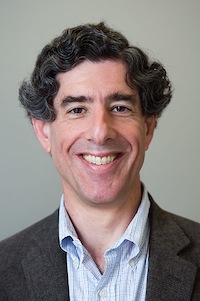In new book, leading neuroscientist describes your brain on emotion
Building on more than 30 years of cutting-edge brain research, a new book by UW–Madison psychology and psychiatry professor Richard J. Davidson offers an inside look into how emotions are coded in our brains and our power to control them.
Published March 1, “The Emotional Life of Your Brain,” co-authored by Davidson and science journalist Sharon Begley, describes six distinct emotional dimensions, each with a defined and measurable neural signature. Each person’s unique combination of the six dimensions together comprise what Davidson calls “emotional style” – the essence of our personality and the reflection of how we live and respond to our experiences.
The six dimensions – resilience, outlook, social intuition, self-awareness, sensitivity to context and attention – emerged from Davidson’s research on affective neuroscience, the study of the brain basis of human emotion.
Intrigued by the tremendous differences between even closely related individuals, he embarked on a quest to better understand the physical foundations of emotion at a time when such questions were not included in scientific discussions.
“To say that studying emotions was not very popular when I began… is like saying the Sahara is a trifle dry,” he writes in the book.
In the decades since, he has largely redefined how neuroscientists think about emotion, showing that emotions involve brain regions also responsible for complex thought and decision-making. Those findings represent a radical departure from the traditional view: that the brain’s primary job is cognition, and that emotion is an auxiliary role at best and a distraction from the brain’s main function at worst.
The book includes a series of self-assessments to help readers determine where they fall in each of the six dimensions, as well as strategies for shifting their emotional styles.
Davidson describes the book as a personal and professional journey.
“This book will hopefully take readers through my scientific quest for answers and understanding why and how people differ in terms of their emotions and responses to different life experiences,” he says. “But this book was also very much motivated by my personal desire to help people lead healthier and more fulfilling lives.”
He furthered this goal when he founded the Center for Investigating Healthy Minds (CIHM), a research center dedicated to the study of positive qualities, at UW–Madison’s Waisman Center in 2008.
“There is a powerful overlap between the concepts of emotional style and the work we’re doing at CIHM,” Davidson says. “In my book, I describe emotional styles, their brain bases and how we can change these for the better, and CIHM is all about how we can change our emotional styles to live a more positive, happier and more fulfilling life.”
One avenue of research at CIHM includes resilience training for preschoolers to help the children deal with stressful situations.
“These children face adversity every day, at many levels. It could be as simple as one child taking a toy away from another – in their world, that’s a major adversity that can bring about negative emotions,” Davidson explains. “We believe that by nurturing resilience within children at a young age, we’re giving them essential tools that can help them throughout life.”
Another area of ongoing research is investigating therapies based in yoga and meditation as alternative treatments for returning veterans, many of whom suffer from post-traumatic stress disorder (PTSD). PTSD can severely debilitate the outlook dimension of emotional style, Davidson says, hampering the ability to sustain positive emotion over time.
“There are strategies we can harness,” Davidson says. “They can improve our outlook and also help us do a better job of maintaining healthy qualities of mind over time.”
On April 3, Davidson will take part in his first local book talk, a collaborative event with CIHM and the Wisconsin Academy of Sciences, Arts and Letters. The public event will be held at Union South, 1308 W. Dayton St., at 7 p.m.
More information about Davidson’s research, CIHM and “The Emotional Life of Your Brain” is available at http://richardjdavidson.com and http://www.investigatinghealthyminds.org.





